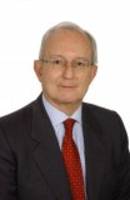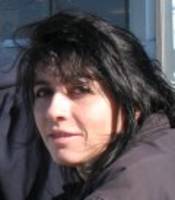
- Marco Ajmone Marsan

- Michela Meo
Marco Ajmone Marsan http://www.telematica.polito.it/public/faculty/marco-ajmone-marsan Professor, Department of Electronics and Telecommunications, Politecnico di Torino, Italy.
Michela Meo http://www.telematica.polito.it/public/faculty/michela-meo Associate Professor, Department of Electronics and Telecommunications, Politecnico di Torino, Italy.
Summary
This tutorial will address the field of green networking, reporting the experiences and results collected during the activity of the FP7 Network of Excellence TREND (Towards Real Energy-efficient Network Design). The “green networking” topic has been increasingly attracting the attention of the international networking research community. While many research groups and projects concentrate on specific network segments, the TREND partners took a more general view, considering all network aspects. This allowed TREND to obtain results that help answering some fundamental questions in green networking:
• What is the real power consumption of ICT?
• What are the means to best reduce the energy consumption of today’s networks without compromising requirements in network and service performance?
• What are the best suited engineering criteria and principles to actively support energy efficiency in network design, planning, and operation in both short and long terms?
• Which communication and management paradigms and protocols will ensure the most effective distributed energy control?
• What are the most promising and sustainable long-term approaches to energy efficient networking and what are potential migration strategies to achieve this?
• What kind of mutually beneficial incentives can be proposed to network operators, service providers, and users, in order to maximize energy efficiency?
TREND searched for consensual answers to the above questions by identifying feasible and effective solutions to energy-efficient networking along the dimensions of communication layers and planes as well as network domains. Those research activities:
• conducted a detailed investigation of the current situation of network energy consumption and of the state-of-the-art methodologies for energy-efficient networking, and identified the scaling of power requirements with the network size and capacity.
• studied the impact and potential exploitation of innovative communication techniques to actively support energy-efficient networking on all communication layers, from device and spectrum to applications, including the mutual interaction between layers.
• investigated the design and interaction of novel control and management plane abstractions suited to incorporate energy-specific signalling and management for networks, network equipment, and their subsystems. This includes the implementation of a distributed system to continuously monitor the power consumption of the whole network, allowing for an energy-efficient management of the whole system.
• considered different network domains, including:
o Next-generation mobile radio technologies that are cost-, spectrum- and energy-efficient to implement energy-efficient wireless access networks
o Distributed and centralized energy-efficient resource allocation algorithms to maximize the throughput of wireless mobile terminals for each energy unit used for transmission
o Ultra-high capacity optical and electronic access and transport networks to implement energy efficiency means in wired access and core networks
o Computation domains that include data centers and server farms.
The tutorial will report the main findings and conclusions of the TREND project in a structured way, including suggestions for future research in green networking.
Outlines of topics to be covered
• An energy primer - Generation (fossil/renewable), Transport and distribution, Metrics (LCA)
• The big picture - The ICT worldwide footprint, Estimation of overall possible energy savings
• The operator needs - Metro/core networks, Wired access, Wireless access
• The manufacturers approach - Metro/core networks, Wired access, Wireless access
• Some research proposals - Metro/core networks, Wired access, Wireless access, Applications, Data center networks, Networking based on renewable energy
